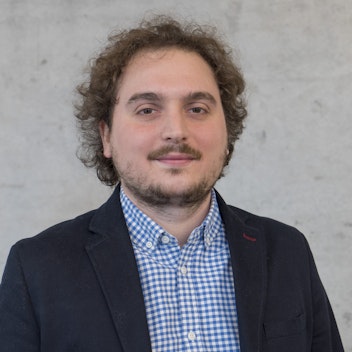
Minority and education in a future South Tyrol



The Intergroup for Traditional Minorities, National Communities and Languages has a long tradition in the European Parliament. How will the new composition of the Parliament and political developments affect its future? These are questions that this commentary addresses.
Following the EU parliamentary elections in June this year, MEPs and officials are now in the process of forming various groupings and committees for the five years ahead in this tenth EU parliament session which will run until 2029. In the context of national and linguistic minorities, there have always been a number of MEPs (largely) from regionalist parties who have come together within the Intergroup for Traditional Minorities, National Communities and Languages. The roots of the Intergroup date back to 1983, in a much smaller EU parliament, but it has maintained a continuity throughout the following decades and has always managed to function as a cross-party forum to advocate for minority issues in Europe. As such, it is expected to reform for the present session and has stated its intention to do so. However, in the context of an unprecedently large far-right bloc of MEPs, there are political tensions between different groups within the parliament and this could have knock-on effects to cross-party initiatives.
For the 2019-2024 term, the Intergroup for Traditional Minorities, National Communities and Languages (hereinafter, Intergroup) was co-chaired by three MEPs; François Alfonsi of Femu a Corsica – within the Regions and Peoples with Solidarity coalition (Régions et Peuples Solidaires) –, Kinga Gál of Fidesz, and Loránt Vincze of the Democratic Alliance of Hungarians in Romania (Romániai Magyar Demokrata Szövetség). Their respective political groups of Greens/EFA and EPP demonstrated the cross-party efforts from the chairs and this was also reflected in the membership – 31 members from 15 member states, representing all seven political groups in the EU parliament. Whilst they are not official bodies of the Parliament and cannot express opinions on behalf of it, they do hold significant symbolic power through the various meetings with different stakeholder groups such as international organisations and NGOs. As such, it has been seen as an important body for minority representation at the EU level.
In terms of the future iteration of the Intergroup, it is certain that the constellation of the co-chairs will change – Alfonsi is no longer an MEP. As for the other two, Gál and Vincze, they have both picked up considerable baggage in recent years. As a member of Viktor Orbán’s Fidesz party, Gál was forced out of the mainstream centre-right EPP grouping alongside her fellow Fidesz MEPs when the party was suspended in 2019 and subsequently quit in 2021 following a rule change by the group to make it easier to suspend and expel members. Following the 2024 election, Orbán formed a new political group, Patriots for Europe, and Gál was appointed Vice-President – alongside its President, Jordan Bardella of France’s National Rally (Rassemblement national). The new grouping has attracted parties from across Europe’s far-right – including Spain’s Vox, notorious for their opposition to linguistic rights on the domestic level. Many of the members were formerly part of the Identity and Democracy (ID) group, the main far-right voice in the previous parliament, but the Patriots does not hold a monopoly on the far-right as many chose to remain with the European Conservatives and Reformists (ECR) including Poland’s Law and Justice (Prawo i Sprawiedliwość) and also Italy’s Brothers of Italy (Fratelli d’Italia) led by Prime Minister Giorgia Meloni. One of the main dividing lines between these two groups now is sympathy for Russia / support of Ukraine, with ECR much more pro-NATO.
From the part of Vincze, his RMDSZ remains in the EPP and he himself has a new role as the group’s Coordinator of the Committee on Constitutional Affairs. He also continues to be the President of the Federal Union of European Nationalities (FUEN) until next year when his third term (of a maximum of three, according to Article 25 of their statutes expires. In his FUEN role, he oversaw the Minority SafePack Initiative campaign which successfully collected over one million signatures but was ultimately rejected by the EU Commission. This gained him a lot of credit with FUEN members and increased his profile in the EU Parliament but he has received criticism from some FUEN members in recent years for his defence of Orbán and the Fidesz government. This was a difficult position for Vincze as FUEN receives in excess of €500,000 a year from the Hungarian government and thus has been financially reliant on them for developing many of its projects – including financing the MSPI. In addition, Vincze’s speeches in the EU parliament have moved beyond defending national and linguistic minorities – with a recent intervention echoing far-right anti-migrant rhetoric. Balancing these two roles may also become more problematic for Vincze in relation to Ukraine. Whilst FUEN has previously strongly condemned Russia’s aggression, the Orbán government is notoriously more friendly towards the Kremlin – a sentiment shared with many in the Patriots for Europe group. Although Vincze’s FUEN term is ending, there are some voices within the organisation suggesting the term limit should be extended to allow continuity – Vincze himself stated he would not rule it out if asked.
In terms of where this leaves the Intergroup going forward, at the very least Alfonsi needs replacing as co-chair and for balance it would seem that this should be an MEP from a non-kin state setting – similar to Corsican, which Alfonsi represented – but also from a centre or left parliamentary group. The Intergroup had previously quite a few members from Spain, with Basque, Catalan and Galician being (comparatively) strong linguistic spheres in the minority context, yet, would an MEP from a left-leaning regionalist party be comfortable co-chairing alongside Gál with her group’s cooperation with Vox, or alongside Vincze with his increasingly anti-migrant rhetoric? With these issues in mind, it may well be that the Intergroup decides more neutral chairs are needed – it wouldn’t be a surprise to see Gál step aside, for example. Another possibility is a complete breakaway by one faction within the Intergroup, forming a separate intergroup to avoid links to the far-right. Indeed, the rise of the right-wing nationalism to new levels in this current EU parliament should be a cause for concern to national minorities – as previous FUEN President Hans Heinrich Hansen recently warned. Thus, a separate intergroup which distances itself from such actors might be the best way forward – yet it also may splinter the cause of what is already a niche topic within the parliament.
Note: This article gives the views of the author and does not represent the position of the European Association of Daily Newspapers in Minority and Regional Languages (MIDAS) or Eurac Research.

This content is licensed under a Creative Commons Attribution 4.0 International license except for third-party materials or where otherwise noted.
This blog is supported by the European Association of Daily Newspapers in Minority and Regional Languages (MIDAS). MIDAS was founded in 2001 to provide assistance to minority language newspapers and nowadays has members all over Europe. MIDAS serves as a platform for exchange, uniting minority language newspapers to present a collective voice to the European institutions.